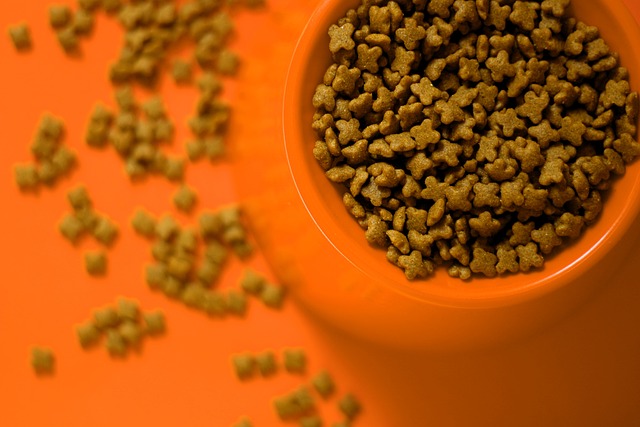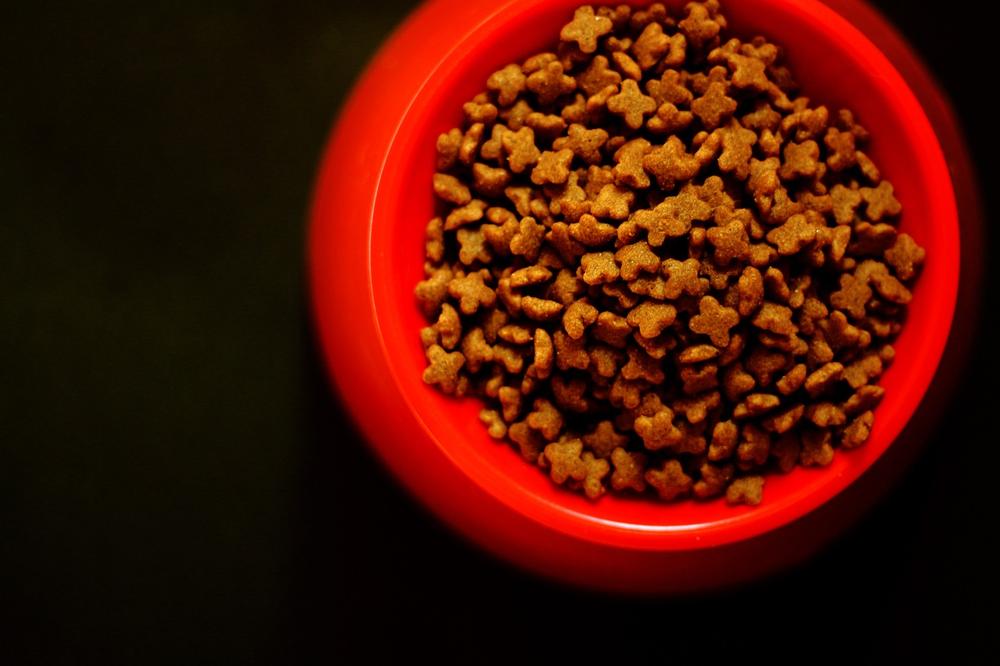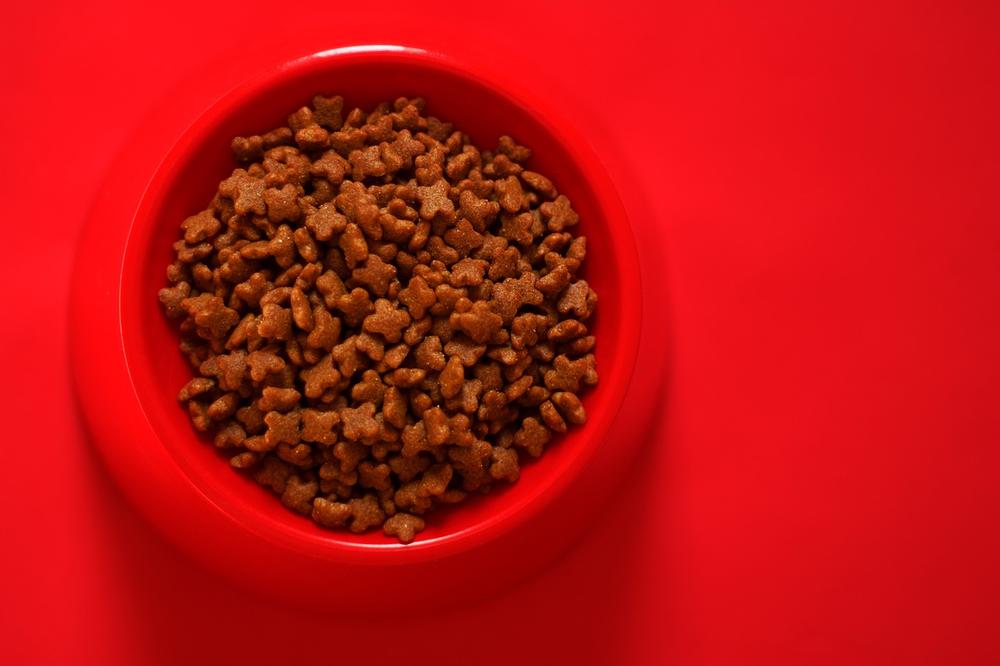Can Humans Eat Cat Food?

Are you staring at that can of cat food, wondering if you could just take a little taste?
I know what you're thinking:
"Is it safe?"
Well, in today's guide, I've got the answers you're looking for.
Let's satisfy that curiosity – shall we? 😊
Keep reading!
Is It Safe for a Human to Eat Cat Food?
No, it is not safe for humans to consume cat food. Cat food is formulated specifically for the nutritional needs of cats, containing animal protein and specific vitamins and minerals. Consuming cat food can disrupt the nutrient balance required for human health.
Nope, it's a no-go for humans to chow down on cat food.
Cat food has nutrients that cater specifically to cats, not people like you and me.
It's packed with loads of animal protein and specific vitamins and minerals that keep furballs healthy.
Here's the kicker...
If you make cat food your regular grub, it'll mess up your nutrient balance big time.
We humans need different nutrition than our feline pals, so cat food won't cut it for us.
But hold up.
Don't even think about sneaking kitty meals into your diet.
Those cans and bags weren't made with us in mind.
They're tailor-made for our furry companions' dietary needs.
Feeding yourself cat food should never be a snazzy habit to have.
And here's one more thing...
While we dig certain flavors, cats have their own taste buds and fancy a different kind of nom-nom.
So just because it's tasty to us doesn't mean it’s okay or wholesome for them.
In the end, stick to human food and let your cat munch on top-quality cat grub that meets their special nutritional needs.
But wait, what if you find yourself in a situation where other food sources are unavailable?
Well, I'm here to shed some light on that!
Can Humans Eat Cat Food in Emergency?
Cat food as a temporary solution in emergency situations
Sometimes, life throws you a curveball and your food supply runs out. It happens to the best of us, and when it does, you might start wondering if cat food is a viable option to keep hunger at bay.
Well, in short, yes, cat food can be consumed by humans in emergency situations where other food options are scarce.
But here’s the catch:
It should only be eaten as a temporary solution.
It definitely shouldn’t replace regular human meals.
Why?
Cat food is formulated for cats, not humans
Cat food is specifically designed to meet the nutritional needs of our feline friends. That means it's packed with nutrients that cats require but may lack what humans need to thrive.
And let’s talk about taste for a moment.
Have you ever tried cat food?

Spoiler alert:
It doesn’t taste like a gourmet meal. It has a strong fishy flavor and a soft texture that might not sit well with your palate.
But in an emergency, the good news is that cat food won’t kill you right away.
However, please keep in mind that cat food lacks essential vitamins and minerals that humans need on a daily basis. If you rely on cat food for too long, it could lead to deficiencies and health problems down the road.
So, remember, cat food is no substitute for a well-balanced human diet.
Pet food is meant for pets, not people
In case it wasn’t clear before, I’ll say it again: cat food is not meant for humans. Your primary food source should always be food that is intended for human consumption.
While it’s true that cat food poses no immediate danger or fatality risk to humans, you should only consume it on rare occasions.
Think of cat food as a backup plan, not a dietary choice. It should be reserved exclusively for emergencies when there are no other food sources available.
So, to sum it up:
Cat food might tide you over in a pinch, but it’s definitely not a sustainable or healthy long-term solution.
But here's why you should think twice before considering cat food as a long-term solution in emergency situations...
Can Humans Eat Dry Cat Food?
While it may be tempting to try, consuming dry cat food is not recommended for humans. The excessive carbohydrates, plant proteins, and lack of essential nutrients can lead to imbalances, deficiencies, and potential health problems. Stick to a diet specifically designed for humans to ensure proper nourishment.
Can humans consume dry cat food?
Alright, let's dive straight in.
Dry cat food contains excessive carbohydrates, plant proteins, fat, and proteins compared to what our bodies actually need.
So, you might want to reconsider snacking on kibble anytime soon.
Thinking about swapping your morning cereal for cat food?
Think again.
Relying solely on dry cat food can lead to imbalances, deficiencies, and potential health problems in humans.
That's not something you want, right?
Sure, occasionally nibbling on a piece of cat kibble won't hurt you.
But making it a regular part of your diet?
Well, that's a recipe for disaster.
Consistently consuming cat food can cause picky eating habits, nutritional deficiencies, and various health issues.
Now, here's where it gets interesting.
Cats have unique taste receptors and water receptors that differentiate their dietary needs from ours.
Feeding them human food can negatively impact their health and cause nutritional deficiencies.
But guess what?
The same goes for us humans.
Both dry kibble and canned cat food lack essential nutrients like vitamin C, which are necessary for humans.
So, it's best to stick to a diet specifically designed for humans instead of relying on cat food long-term.
You definitely don't want to miss out on important nutrients.
Look, I understand.
Curiosity can sometimes get the better of us.
And hey, eating a piece of cat food won't send you running to the emergency room.
However, if you're seeking nourishment and in essence good health, stick to food made for humans and leave the cat chow for the cats.
Can Cat Food Make You Sick?
Can eating cat food make you sick?
Yes, it can. 😷
If you eat expired or improperly stored cat food, you're at risk of getting a foodborne illness caused by bacteria like Salmonella.
This means you might end up vomiting and having diarrhea. Not fun, right?
Both canned cat food and dry kibble could potentially be contaminated, but canned food is generally safer because of better sanitation processes.
However, there's an important point to remember:
Regularly eating cat food increases your risk of vitamin A toxicity.
That's definitely not enjoyable. On the bright side, Temptations cat treats are safe for humans. Good news!
But wait, there's one thing you shouldn't do:
Cat tuna isn't suitable for humans.
It can lead to becoming addicted to it.
No thanks!
While the chances of getting sick from cat food seem low, it still carries similar risks as eating table scraps.

The FDA even recalls pet food due to concerns like Salmonella contamination and high levels of toxins.
Quite scary, huh?
Let's not forget that some chemicals and preservatives in cat food can actually be toxic to us humans.
They can cause nutritional deficiencies, digestive issues, and serious illnesses.
Definitely not cool.
Pet food may contain harmful bacteria and toxic ingredients, including preservatives, dyes, and flavors.
And guess what?
That can result in mild to severe food poisoning or related illnesses.
Oh dear... Thankfully, our body's liver, kidneys, and skin work hard to eliminate foreign substances found in cat food.
So, those high mineral levels in cat food ash don't pose a major concern—they can be eliminated quickly.
But here's the bottom line: cat food is designed for cats' nutrition, not for ours.
It doesn't provide the necessary nutrients to keep us healthy (obviously!).
Plus, it often includes animal parts that aren't used in human food production—think bones, scraps, and offal.
Not exactly appetizing, huh?
So, let's just stick to our own food and leave the cat food for our furry friends.
Raw and Homemade Cat Food
Raw cat food has its dangers, you need to be cautious of them.
I mean, raw cat food can have harmful bacteria like E.
Coli or Salmonella.
And guess what?
These pathogens can actually make you pretty sick too!
It's like a double punch when it comes to health risks.
But hold on, there's more. Raw meat in cat food isn't as nutritious as cooked meat.
Yeah, even you food-loving humans out there. So, let's just say it's not the best choice for either party involved.
No one wants to miss out on those vital nutrients.
Oh, and by the way, please don't feed your furry friends raw meat, bones, or fish.
It can harm them, and we definitely don't want that.

Safety always comes first, right?
Keep their little tummies safe and sound.
Quick note:
Pet food doesn't have that oh-so-important vitamin C that us humans need.
Nope, won't find it there. So, ensure to get your daily dose from other sources.
And listen up, vegan or vegetarian folks, please resist the temptation to swipe cat food off the shelf. It's totally not recommended for you.
Adding unnecessary protein to your diet is a big no-no.
There you have it, my friends!
And guess what? If you're curious about whether it's safe to eat food that a cat has licked, I've got you covered.
Check out my article If Cat Licks My Food Can I Eat It for all the answers you're looking for.
Trust me, you don't want to miss this important information.
Let's keep both you and your furry friend safe and informed!
Prioritizing Safety and Health in Cat Food Consumption
When it comes to feeding your cat, you need to make sure that safety and health are your top concerns.
Here's what you need to keep in mind:
- Stick to cat food made specifically for cats: Even though cat food is made from similar ingredients as human food, it's not of the same quality and is marked as "not fit for human consumption." Choosing cat-specific food ensures that your furry friend gets the nutrition they need.
- Check the expiration dates and how you store it: Just like with human food, cat food can go bad and become unsafe. Always check the expiration date before giving it to your cat, and store it properly in a cool and dry place to maintain its freshness and effectiveness.
- Don't give cat food to dogs: Dogs and cats have different dietary needs, so feeding your dog cat food can potentially harm them. Stick to dog-specific food options for your canine buddies.
- Know your cat's taste preferences: Cats don't have taste receptors for sweetness, so avoid giving them sugary or sweetened food. Look for cat food that has been specially formulated for their taste preferences.
- Buy cat food from trusted brands and sources: Pet food manufacturers follow regulations and standards for animal food. To ensure the safety and quality of the cat food you buy, stick to reputable brands and the pet-specific sections of stores.
Prioritizing the safety and wellness of your cat while feeding them will ensure their happiness and overall good health. 😺
What Does Human Grade Actually Mean?
Human grade cat food doesn't mean it's suitable for human consumption. While these brands meet safety standards for humans, they are specifically formulated for cats' nutritional needs. Stick to food made for humans instead.
Let's get this fact straight, my friends.
When cat food companies claim their products are human grade, it doesn't mean it's steak and burgers fit for us humans.
Nope, not at all.
Sure, these cat food brands meet safety standards for humans. But let's face it:
They're not meant for our consumption.
Take Newman's Own canned beef formula, for example.
It might sound like a fancy meal from a five-star restaurant to you.
I get it.
The label even boasts free-range beef from Uruguay and USDA-certified organic ingredients.
Tempting, huh?
But here's the thing: that Newman's Own cat food is formulated for your furry friend with whiskers, not your own delightful taste buds.
Let's keep things in perspective.
The cat food companies may claim to be ultra-special by using the term human grade.
However, remember this nugget of knowledge: these products are still primarily formulated and marketed for cats' specific nutritional needs.
Before you eat your cat's dinner, think twice. Stick to food made specifically for humans, my dear reader.
Trust me, it's for the best.
Final thoughts
Key Takeaways:
- Cat food is not meant for humans and should not be a regular part of the human diet.
- Consuming small amounts of cat food occasionally poses no immediate danger, but it does not provide adequate nutrition for humans.
- Cat food is formulated to meet the specific nutritional needs of cats, which differ from humans.
- Long-term consumption of cat food can lead to deficiencies and health problems in humans.
- Cat food often contains higher amounts of fats, proteins, and carbohydrates than what the human body needs.
- Feeding cats human food is not recommended as it can cause health problems and nutritional deficiencies in cats.
- Canned cat food is considered safer than dry kibble due to sanitation processes.
- Cat food can contain toxic substances, bacteria, and preservatives that may be harmful to humans.
- Raw meat in cat food can make humans sick if infected with bacteria.
- Pet food, including cat food, uses lower quality ingredients compared to human food.
- Some cat food brands may claim to be human-grade, but they are still intended for cats, not humans.
And that wraps up today's article.
If you wish to read more of my useful articles, I recommend you check out some of these: Can Cats Eat Wheatgrass, Can Cats Eat Spaghetti, Can Kittens Drink Human Breast Milk, Can Cats Eat Mayonnaise, and Can Cats Eat Pistachios
Talk soon,
-Sarah Davis